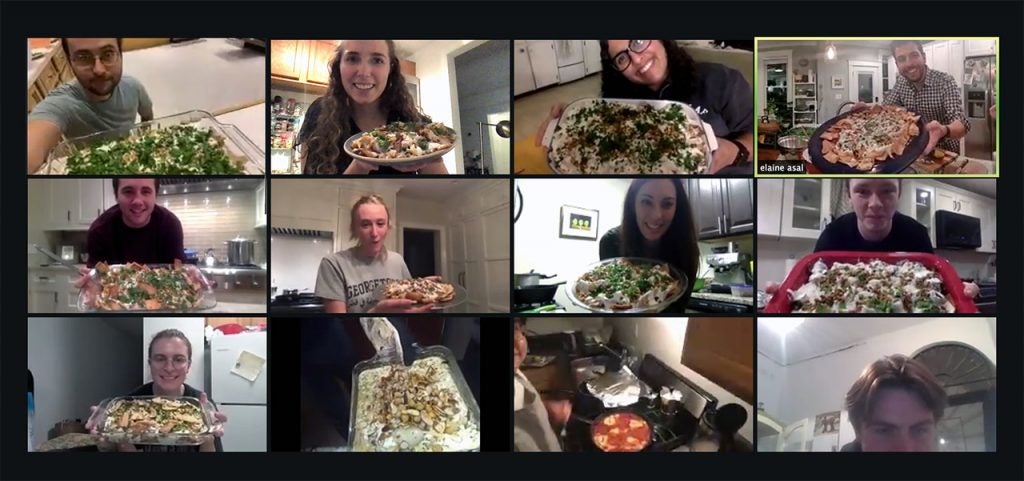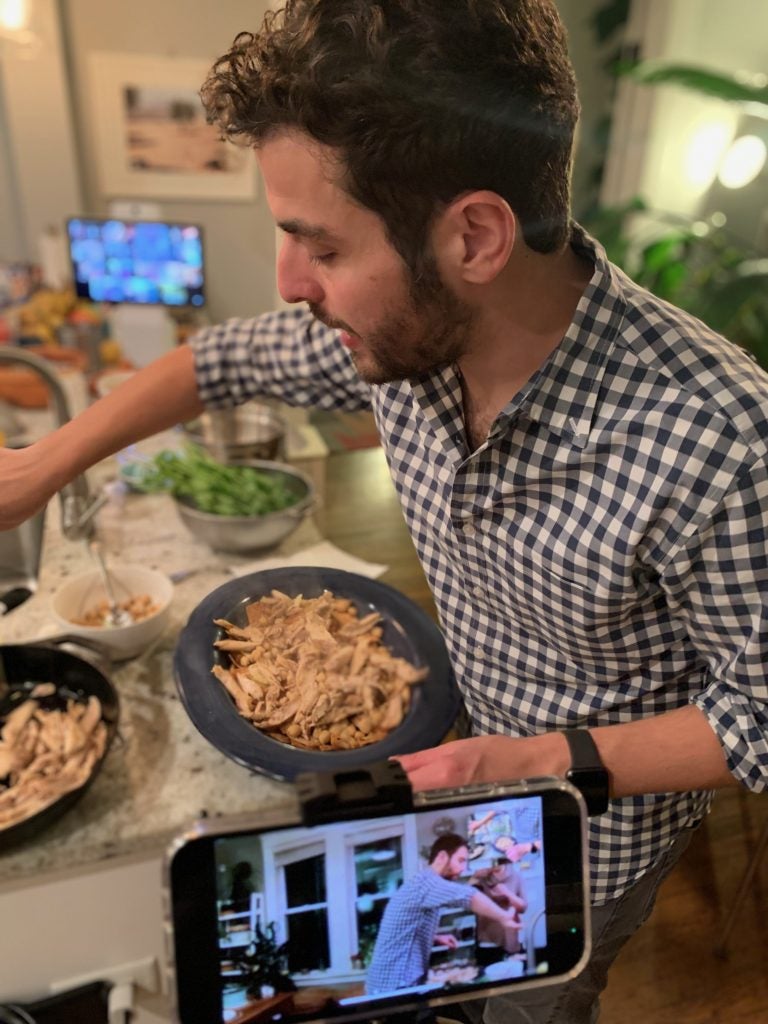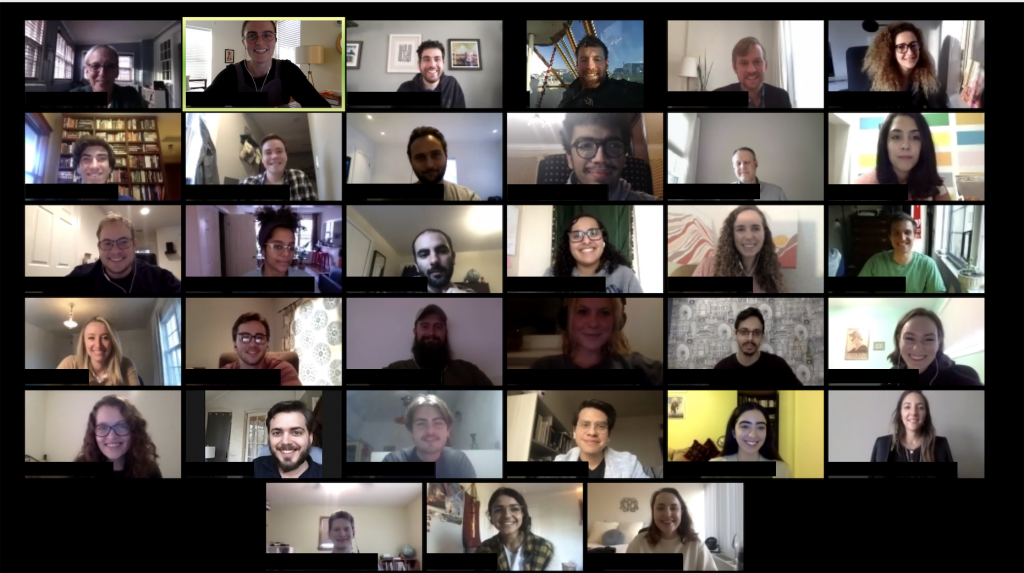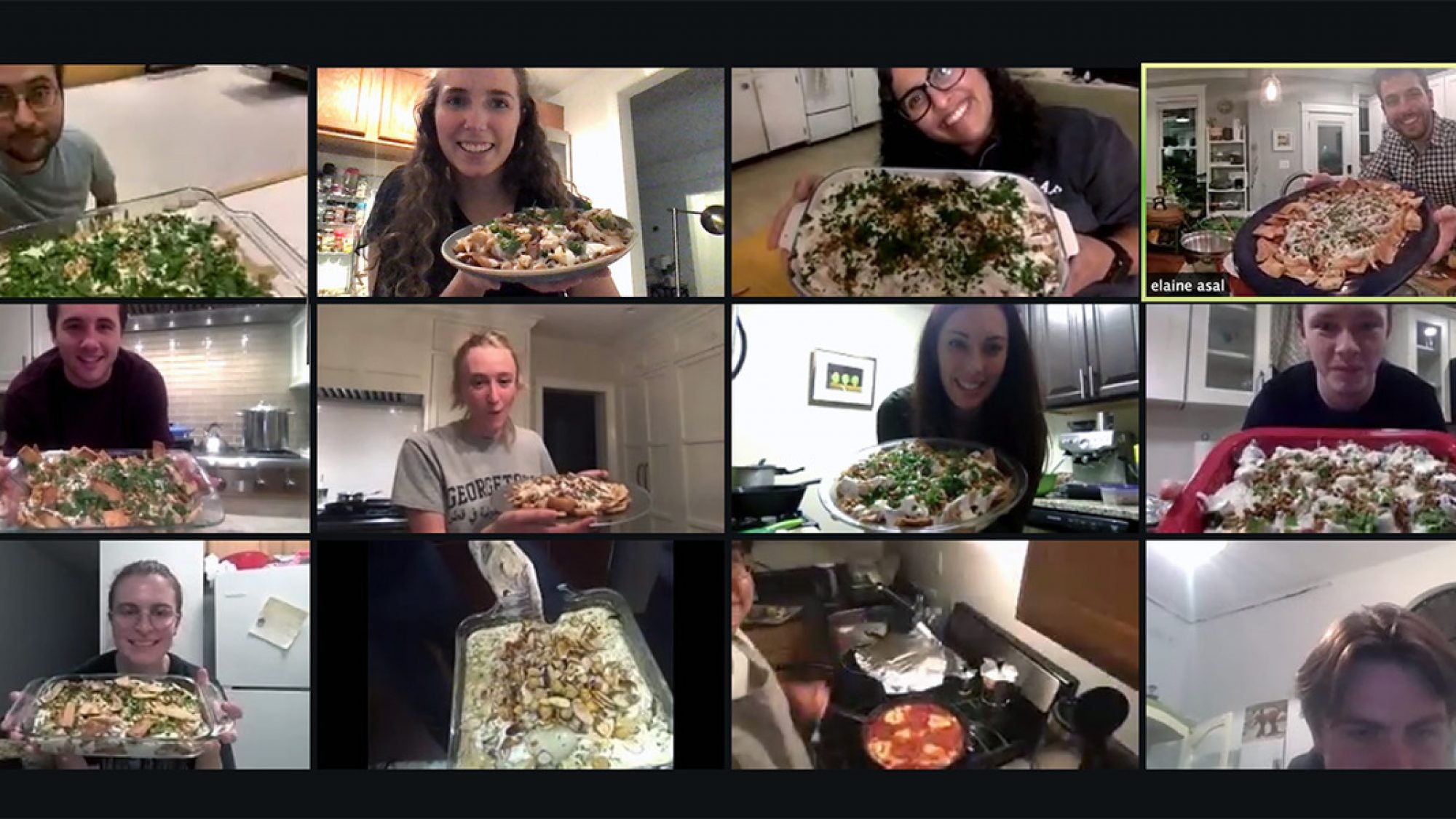
Strengthening and expanding our community in a time of isolation
By Vicki Valosik
Much of 2020 has been shaped by the unprecedented global challenges brought about by COVID-19 pandemic. The necessity of physical distancing has completely altered the way universities, and our own Center, operate. Following spring break, CCAS and the rest of Georgetown quickly transitioned to a virtual learning environment, moving work, classes, and—where possible—our events online. CCAS faculty and staff adapted the video conferencing tool Zoom not only for online classes but also to create unique ways to virtually gather and keep our sense of community strong and vital. We even hosted the 2020 MAAS commencement, featuring musical performances and guest speakers, via Zoom—and live streamed the event on YouTube for friends and family.

Just as we had to say virtual farewells to the graduating class in May, this fall we welcomed a new cohort of incoming students virtually, hosting the fall orientation fully online. Despite the physical distances, we have found innovative ways to foster new connections. This fall, we hosted monthly Zoom “mixers” and a game night to provide students, faculty, and staff opportunities to mingle and have informal conversations. One of the most popular social events this semester, however, was a two-part virtual cooking class hosted by first-year MAAS student and food writer Antonio Tahan. Participants gathered the necessary ingredients in advance and then followed along, cooking at home, while Antonio demonstrated how to make yogurt, rice pudding, and Aleppan-style fatteh. The warmer weeks of early fall presented opportunities for students to gather safely outdoors in small, physically distanced groups. Several professors arranged class picnics or outdoor coffee chats with their students.
In addition to these community activities, CCAS has hosted public events examining the global and regional impact of the ongoing public-health crisis. In November, the virtual event “The Impact of COVID on Humanitarianism and Development in the Arab World” featured a panel of three MAAS alums whose work touches on governmental and humanitarian responses to the pandemic. “The Beirut Explosion: Context and Developments” with American Druze Foundation Fellow Ziad Abu Rish and MAAS alum Maya Mikdashi discussed the intersecting public health, political, and economic crises in Lebanon that set the backdrop for the devastating explosion in August. In October, Prof. Sassoon participated in the School of Foreign Service’s Global Challenges Symposium. He interviewed HRH Princess Ghida Talal of the King Hussein Cancer Foundation and Center and H.E. Dr. Saad Jaber, Jordan’s Minister of Health, about Jordan’s early successes in containing the virus as part of a panel on the regional challenges of COVID-19.

While the move to virtual events and online classes was made out of necessity, these new platforms have created unique opportunities to expand both our audience and our offerings. Hundreds of people have tuned in from around the world to join our live virtual events, with more than 200 people attending the September event “Race and Racism in Africa and the Middle East,” which was co-sponsored by the Department of African Studies. Our Education Outreach program has found similar opportunities to reach teachers who might not be able to spare the time or expense to travel to Washington for week-long multi-day trainings. Presenters—who no longer need to travel for speaking engagements—joined us this fall from Lebanon, Algeria, Qatar, Kuwait, the Netherlands, France, and elsewhere. Professors have also taken advantage of the availability of global experts, who are just a Zoom call away, to meet with their students. For example, Prof. Dania Thafer integrated discussions with former members of the parliaments of Kuwait and Bahrain and authors of foundational texts into her “Oil and Politics” course.
It has been a challenging time and we are anxious to be on campus with our students again, but we are also proud of the ways our community has maximized the potential of online learning and created spaces of togetherness during this unique and difficult period.
Vicki Valosik is the Multimedia and Publications Editor at CCAS.
